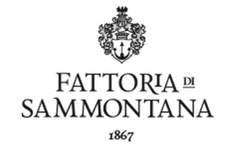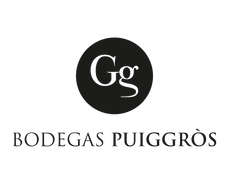501 products
- Red Wine
- Pinot Noir
- Sustainable, Vegan-Friendly
- Dry
- Medium Bodied
- 750ml
- 13.4% alc./vol
- Red Wine
- Carignan, Cinsault, Lambrusco di Sorbara, Pinot Nero, Sangiovese, Syrah, Trebbiano
- Natural, Organic, Sustainable
- Dry
- 750ml
About the Winery
Domaine Frédéric Brouca

Frédéric grew up in Normandy and met his Canadian wife Elaine at university in Lille, Northern France. They live a nomadic lifestyle (Canada, India, Singapore and USA) though Frédéric spends about half of his time in Faugères. Since early age, Frédéric had a calling for farming and the fierce desire to become a winegrower. After completing a Masters Degree in Finance in 2001, Frédéric went back to college for a Sommelier diploma and started his career as a Burgundy wine broker.
In late 2012, Frédéric and Elaine were fortunate to take over 25 acres of old vines in Faugères, organically farmed for twenty years and deeply rooted in schist soils.
2013 was the inaugural vintage for Domaine Frédéric Brouca. In his modest winery in the village of Laurens, Frédéric is creating a new vision for Faugères wines; fresh, vibrant and made without artifice. Nothing revolutionary, simply returning to our grandparent's ideology of farming and winemaking to craft 'Vins Vivants'. The Faugères Appellation is in the heart of Languedoc in the Hérault department. Here, winemaking dates back to the Greek times and was developed during the Roman Era. It wasn't until the early 1900's, however, that the wines became more widely known for its unique schist soils and moderate Mediterranean climate. These villages are heavily reliant on wine as an important part of their culture and economy.
The area is stunning with mountain views and close proximity to the Mediterranean Sea (20 miles / 30 kms). Faugères has a long history of responsible farming. It boasts the highest percentage of organic vineyards for any AOC in all of France with almost 50% of farmers making the choice.
Fattoria di Sammontana

The vineyards of Fattoria di Sammontana are located along the hills that border the Arno River, 20km to the south west of Florence. Today, the family - now in its fourth generation - runs the farm according to organic and biodynamic practices, with the intent to fully preserve and sustain the traditions and winemaking history of the land. The property and its 12th century Romanesque church, were once the property of the Medici family.
Pearce Predhomme

Pearce Predhomme is a collaboration of like-minded individuals from around the globe. Founded with a mission to build and import wines from our favourite appellations while offering an unequaled value/quality ratio for the sommeliers & wine buyers in Ontario. This is a project between Toronto Sommelier and entrepreneur Will Predhomme and Ontario wine importer Nicholas Pearce they have partnered with Radford Dale in South Africa and NorthWest Wine Co. in Oregon to create these special cuvées.
- Rosé Wine
- Sustainable
- Dry
- 750ml
- White Wine
- Listán Blanco
- Sustainable, Vegan-Friendly, Volcanic
- Dry
- Medium Bodied
- 750ml
- 13% alc./vol
About the Winery
Viñátigo

Juan Jesús is a proud native of Tenerife and the fourth generation of growers. During the thirty years that he's overseen Bodegas Viñátigo, he has considerably increased its holdings, planting varieties that he and his team recuperated from near extinction.
Driven by passion and love for his homeland, Juan decided to revive and work to save the native grape varieties that were brought to the Canary Islands by the conquers back in the 15th century and that had survived on the islands for centuries. He is a hero of contemporary Canarian viticulture. The wealth of knowledge that his work has created has helped underpin the significant expansion of wine styles that are now available throughout the archipelago, and his wines have achieved a calibre of class that many doubted the Canaries would ever produce again. (The Epic Wines of the Canary Islands, written by Santo Bains).
Press Reviews
Robert Parker
93 points
The 2022 Lomo de la Era, another of the new single-vineyard certified wines from the DOP Islas Canarias, Tenerife appellation, was produced with Listán Blanco grapes, in this case from a cordón trenzado plot of vines in the western part of the Orotava Valley on sandy, silty and basalt soils. The juice from the pressing with part of the stems was let to settle and fermented with indigenous yeasts in concrete, where the wine matured with static lees (not stirred) for nine months. It has moderate ripeness and alcohol (12%) with a mixture of floral, fruit and soil notes and an austere palate with dusty minerality, vibrant and pungent flavors and a clean finish. 2,320 bottles were filled in July 2023.
Viñátigo, the project from Juan Jesús Méndez, was one of the pioneers of the local varieties in the Canary Islands, where he's been recovering forgotten varieties since 1990. He's now joined by his son Jorge, who is giving a more modern profile to the wines. In 2017, there was a new range of single-vineyard and lieu-dit wines that go one step beyond in 2022, with three new whites from the north of Tenerife. They are all produced with Listán Blanco from different zones and altitudes, climates and soils. They have 12 hectares of vines in the north and northeast of Tenerife, and their production averages 150,000 bottles per year.
Published: Nov 30, 2023
92 points
The 2022 Camino de La Peña is one of the new single-vineyard certified wines from the DOP Islas Canarias, Tenerife appellation. It was produced with Listán Blanco grapes from a plot of vines in Altos de Icod in the Icod Valley in the northeast of Tenerife and pruned in the traditional parral, or pergola, way on terraces on young volcanic (basalt) soils with sand and minerals. The juice from the pressing with part of the stems was let to settle and fermented with indigenous yeasts in stainless steel, where the wine matured with static lees (not stirred) for nine months. Despite the moderate 12.7% alcohol, this has a riper nose than the other whites, with notes of yellow fruit, plums and peach, and a gentle and polished palate with soft acidity and a bitter twist in the finish. 2,835 bottles were filled in August 2023.
Viñátigo, the project from Juan Jesús Méndez, was one of the pioneers of the local varieties in the Canary Islands, where he's been recovering forgotten varieties since 1990. He's now joined by his son Jorge, who is giving a more modern profile to the wines. In 2017, there was a new range of single-vineyard and lieu-dit wines that go one step beyond in 2022, with three new whites from the north of Tenerife. They are all produced with Listán Blanco from different zones and altitudes, climates and soils. They have 12 hectares of vines in the north and northeast of Tenerife, and their production averages 150,000 bottles per year.
Published: Nov 30, 2023
- Red Wine
- Carignan, Grenache, Syrah
- Organic, Sustainable
- Dry
- 750ml
- 13.5% alc./vol
About the Winery
Domaine Peter Sichel
Tucked away in a hidden valley in a remote corner of the Languedoc-Roussillon lies a truly special place: the village of Cucugnan. Historically, there was much wine produced here, given its isolated location, but gradually the local people moved away to the towns. There are now just 130 people living in the village. As the vineyards were left mostly abandoned, the local flora and fauna were permitted to thrive. Cucugnan became a unique area, full of biodiversity, which shines through in the rare plants and flowers that grow there today.
Peter Sichel (of the Bordeaux négociant family) first discovered this valley on a road trip with a friend in the 1960s. He was so spellbound by the place that he bought a house there and, in 1988, planted a vineyard. The project grew, albeit slowly, but the arrival of Peter’s thoughtful and environmentally inspired grandson, Alexander Sichel, has turned the Domaine Peter Sichel project completely around.
Since 2019, Alexander has converted the estate to organics and biodynamics, achieving organic certification in 2022. Furthermore, he is committed to supporting polyculture in and around the vineyards, even enlisting the help of a PhD programme from a Dutch university to identify the incredible array of plant life in the vineyard.
Alexander’s grandfather planted the vines between 30-40 years old. Parcels of Grenache, Syrah, Carignan, and Roussanne lie mostly on the best slopes of the valley. Starting from 350-500 metres’ altitude, these slopes have very little topsoil; the roots go almost straight into the bedrock. The viticultural team here has done much work to focus on the unique characteristics of each parcel to express the terroir of this stunning valley in the most authentic way.
- Red Wine
- Grenache
- Organic, Sustainable
- Dry
- 750ml
- 14.5% alc./vol
About the Winery
Domaine Peter Sichel
Tucked away in a hidden valley in a remote corner of the Languedoc-Roussillon lies a truly special place: the village of Cucugnan. Historically, there was much wine produced here, given its isolated location, but gradually the local people moved away to the towns. There are now just 130 people living in the village. As the vineyards were left mostly abandoned, the local flora and fauna were permitted to thrive. Cucugnan became a unique area, full of biodiversity, which shines through in the rare plants and flowers that grow there today.
Peter Sichel (of the Bordeaux négociant family) first discovered this valley on a road trip with a friend in the 1960s. He was so spellbound by the place that he bought a house there and, in 1988, planted a vineyard. The project grew, albeit slowly, but the arrival of Peter’s thoughtful and environmentally inspired grandson, Alexander Sichel, has turned the Domaine Peter Sichel project completely around.
Since 2019, Alexander has converted the estate to organics and biodynamics, achieving organic certification in 2022. Furthermore, he is committed to supporting polyculture in and around the vineyards, even enlisting the help of a PhD programme from a Dutch university to identify the incredible array of plant life in the vineyard.
Alexander’s grandfather planted the vines between 30-40 years old. Parcels of Grenache, Syrah, Carignan, and Roussanne lie mostly on the best slopes of the valley. Starting from 350-500 metres’ altitude, these slopes have very little topsoil; the roots go almost straight into the bedrock. The viticultural team here has done much work to focus on the unique characteristics of each parcel to express the terroir of this stunning valley in the most authentic way.
- Red Wine
- Tempranillo
- Sustainable
- Dry
- Residual Sugar: 1.1 g/l
- 750ml
- 14.3% alc./vol
About the Winery
Bideona

Bideona owns or manages over 300 parcels of extraordinary vines in villages throughout the Rioja Alavesa, the coolest, smallest and most Atlantic sub-zone of Spain’s most famous wine region.
The vineyards of the Rioja Alavesa are defined by parcels of old bush vines planted on terraces or hillside slopes with a high percentage of limestone. Located in the foothills of the Sierra Cantabria, Bideona’s vines have an average age of 50 years and many were planted in the 1920s, 30s and 40s, before high-yielding clones became available.
Bideona puts the focus firmly on terroir by making each wine in its Vino de Pueblo range as a field blend of Tempranillo and other native varieties from plots in an individual village. Each is named with an acronym – L3Z4 for Leza, L4GD4 for Laguardia, S4MG0 for Samaniego and V1BN4 for Villabuena – owing to DOCa Rioja regulations that only allow village names to be marked if both the winery and the vineyard are in the same location.
“Bideona’s reason for existence is to make wines that show the personality of the Rioja Alavesa and its historic wine villages” states company co-founder and director, Andreas Kubach MW. “We have access to a wealth of diverse plant material in our parcels of old vines, which we believe contributes to the complexity of the wines as well as the differences between villages.”
Press Reviews
Wine Align
94 points - John Szabo, MS
One of Bideona's 'single village' wines, in this case Villabuena, this is gorgeous wine, full stop. Hillside vineyards sit around 500 m above sea level, and ripening is later than in Laguardia but earlier than in Leza, a sort of Goldilocks zone for balance, concentration and freshness. Just less than half of the 2020 was aged in 300l barrels (one- quarter new) with the rest in tank, adding to the freshness and preserving the floral nature of 'mountain' tempranillo. I love the silky precision on the palate and the streak of savoury herbs that run through from start to long finish. Acids are perfectly ripe and crunchy, and the perfume lingers on and on. Delicious now, but no rush - hold easily into the '30s. Tasted December 2024.
92 points - Michael Godel
One of of Bodega Bideona's four Vinos de Pueblo (village- designated) series of wines, each with their own acronym. In this case VIBN4 to represent Villabeuna at an elevation in and around 500m. Considered a field blend but with mostly tempranillo and a 50-50 aging style, barrels and tanks for that integrated layering of micro-ox and equalling freshness. A village wine of sleek fruit and authentic flaws, meaning the human eye sorts the grapes, not a machine and character inevitably ensues. Luxe and ripe with a whisper of Villabeuna swarthiness though frescura outworks obscura for a dangerously clean and easy red to knock back. There is some grip, punch and circumstance, so be aware of the sober power of this wine. Will age gracefully for three-plus years. Drink 2024- 2027. Tasted June 2024.
- Red Wine
- Carignan
- Sustainable
- Dry
- Full Bodied
- 750ml
- 14.8% alc./vol
About the Winery
Bodegas Puiggros

Since 1843, the Puiggros family has been producing wines from their own vines in the Odena region of Catalunya for the family and close friends. Over generations they had come to realize that their vineyards and techniques were something worth sharing with the world. A sincere dedication to the terroir in their zone and the indigenous varieties that grow there, allows them to constantly discover ways to unlock all of the magic that lies within their land.
Starting with conscious and clean farming in the vineyard, they hand-harvest only the best fruit for their production, and ferment each vineyard separately in varying vessels to accentuate what the vines have to show; some in stainless steel, and many in clay amphora of differing sizes. All the while seeing very little sulfur use (if any) until bottling. Puiggros is pushing the quality of northeastern Spain's wines forward, and doing so in a clean and unique way.
Bodegas Puiggròs

Since 1843, the Puiggros family has been producing wines from their own vines in the Odena region of Catalunya for the family and close friends. Over generations they had come to realize that their vineyards and techniques were something worth sharing with the world. A sincere dedication to the terroir in their zone and the indigenous varieties that grow there, allows them to constantly discover ways to unlock all of the magic that lies within their land.
Starting with conscious and clean farming in the vineyard, they hand-harvest only the best fruit for their production, and ferment each vineyard separately in varying vessels to accentuate what the vines have to show; some in stainless steel, and many in clay amphora of differing sizes. All the while seeing very little sulfur use (if any) until bottling. Puiggros is pushing the quality of northeastern Spain's wines forward, and doing so in a clean and unique way.
- White Wine
- Listán Blanco
- Sustainable, Vegan-Friendly, Volcanic
- Dry
- Medium Bodied
- 750ml
- 13% alc./vol
About the Winery
Viñátigo

Juan Jesús is a proud native of Tenerife and the fourth generation of growers. During the thirty years that he's overseen Bodegas Viñátigo, he has considerably increased its holdings, planting varieties that he and his team recuperated from near extinction.
Driven by passion and love for his homeland, Juan decided to revive and work to save the native grape varieties that were brought to the Canary Islands by the conquers back in the 15th century and that had survived on the islands for centuries. He is a hero of contemporary Canarian viticulture. The wealth of knowledge that his work has created has helped underpin the significant expansion of wine styles that are now available throughout the archipelago, and his wines have achieved a calibre of class that many doubted the Canaries would ever produce again. (The Epic Wines of the Canary Islands, written by Santo Bains).
Press Reviews
Robert Parker
92 points
The 2022 Camino de La Peña is one of the new single-vineyard certified wines from the DOP Islas Canarias, Tenerife appellation. It was produced with Listán Blanco grapes from a plot of vines in Altos de Icod in the Icod Valley in the northeast of Tenerife and pruned in the traditional parral, or pergola, way on terraces on young volcanic (basalt) soils with sand and minerals. The juice from the pressing with part of the stems was let to settle and fermented with indigenous yeasts in stainless steel, where the wine matured with static lees (not stirred) for nine months. Despite the moderate 12.7% alcohol, this has a riper nose than the other whites, with notes of yellow fruit, plums and peach, and a gentle and polished palate with soft acidity and a bitter twist in the finish. 2,835 bottles were filled in August 2023.
Viñátigo, the project from Juan Jesús Méndez, was one of the pioneers of the local varieties in the Canary Islands, where he's been recovering forgotten varieties since 1990. He's now joined by his son Jorge, who is giving a more modern profile to the wines. In 2017, there was a new range of single-vineyard and lieu-dit wines that go one step beyond in 2022, with three new whites from the north of Tenerife. They are all produced with Listán Blanco from different zones and altitudes, climates and soils. They have 12 hectares of vines in the north and northeast of Tenerife, and their production averages 150,000 bottles per year.
Published: Nov 30, 2023
- White Wine
- Listán Blanco
- Sustainable, Vegan-Friendly, Volcanic
- Dry
- Medium Bodied
- 750ml
- 13% alc./vol
About the Winery
Viñátigo

Juan Jesús is a proud native of Tenerife and the fourth generation of growers. During the thirty years that he's overseen Bodegas Viñátigo, he has considerably increased its holdings, planting varieties that he and his team recuperated from near extinction.
Driven by passion and love for his homeland, Juan decided to revive and work to save the native grape varieties that were brought to the Canary Islands by the conquers back in the 15th century and that had survived on the islands for centuries. He is a hero of contemporary Canarian viticulture. The wealth of knowledge that his work has created has helped underpin the significant expansion of wine styles that are now available throughout the archipelago, and his wines have achieved a calibre of class that many doubted the Canaries would ever produce again. (The Epic Wines of the Canary Islands, written by Santo Bains).
Press Reviews
Robert Parker
93 points
The 2022 Lomo de la Era, another of the new single-vineyard certified wines from the DOP Islas Canarias, Tenerife appellation, was produced with Listán Blanco grapes, in this case from a cordón trenzado plot of vines in the western part of the Orotava Valley on sandy, silty and basalt soils. The juice from the pressing with part of the stems was let to settle and fermented with indigenous yeasts in concrete, where the wine matured with static lees (not stirred) for nine months. It has moderate ripeness and alcohol (12%) with a mixture of floral, fruit and soil notes and an austere palate with dusty minerality, vibrant and pungent flavors and a clean finish. 2,320 bottles were filled in July 2023.
Viñátigo, the project from Juan Jesús Méndez, was one of the pioneers of the local varieties in the Canary Islands, where he's been recovering forgotten varieties since 1990. He's now joined by his son Jorge, who is giving a more modern profile to the wines. In 2017, there was a new range of single-vineyard and lieu-dit wines that go one step beyond in 2022, with three new whites from the north of Tenerife. They are all produced with Listán Blanco from different zones and altitudes, climates and soils. They have 12 hectares of vines in the north and northeast of Tenerife, and their production averages 150,000 bottles per year.
Published: Nov 30, 2023
- Red Wine
- Pinot Noir
- Sustainable, Volcanic
- Dry
- Residual Sugar: 2.00 g/l
- Medium Bodied
- 750ml
- 13.00% alc./vol
About the Winery
Vinos Baettig

Francisco Baettig and Carlos de Carlos have been friends for more than 20 years and share a passion for high-quality wines that are genuine and connected to the land where they are made.
"A promising project in a wine region that is the future of high-quality Chilean wines" - Patricio Tapia, Descorchados
Press Reviews
James Suckling
94 Points - Zekun Shuai, Senior Editor
Lots of flowers and strawberries with hints of sauerkraut, tile, seashells, iodine and herbs. Succulent and firm with direct, pure red-berry fruit. Fresh, dusty tannins give grip at the end. 30,000 bottles made. Around 15% whole clusters. Drink now or hold.
Vinous Media
94 Points - Joaquín Hidalgo
The 2023 Pinot Noir Viñedo Los Parientes originates from Traiguén, Araucanía. Fermented with 15% whole clusters and aged for eight months in oak barrels, it presents a purple hue. Aromas of cherries, pomegranate, dried flowers, and sweet briars intertwine with cedar notes. Dry, lean and taut on the palate and the combination of stem tannins, oak and silky pinot-texture elevates things, creating a faintly plush mouthfeel with a gentle roughness. This is a meticulously crafted Pinot Noir from the deep south of Chile.





























